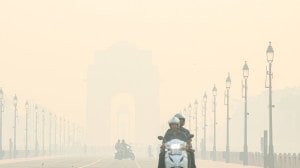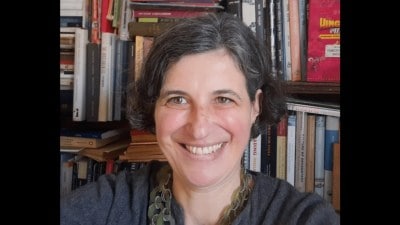Speaking truth to power is not only a right but also the duty of every citizen and the way to achieve this is by strengthening public institutions such as ensuring the freedom of the press and the integrity of elections, acknowledging and celebrating the plurality of opinions and by committing oneself to the search for truth as a key aspiration of society, Supreme Court judge Justice D Y Chandrachud said Saturday.
Cautioning that the truth, as determined by the State, may not always be free of falsehood, he said: “One cannot only rely on the State to determine the ‘truth’.” Delivering the Sixth Chief Justice M C Chagla Memorial Online Lecture, Justice Chandrachud said that “democracy needs the power of truth to survive”. He then went on to elaborate on the nature of truth, especially its strong contestations today.

Truth, he said, instils “a sense of public trust in democracies”, and also plays a key role in creating a shared “public memory” upon which the foundations of a nation can be built in the future. That’s why countries set up Truth Commissions immediately upon gaining independence from a totalitarian regime or after coming out of a period fraught with human rights violations, Justice Chandrachud said.
Story continues below this ad
In a different context, he said, this role can also be played by courts and illustrated this by citing the example of how the apex court took suo motu cognizance of the Covid-19 pandemic.
Referring to the multiple truths in the social media age, he stressed the importance of “deliberations” to arrive at a consensus on, at least, the basic facts.
To exercise the right to speak truth to power, it was first necessary to understand what truth means, he said, and pointed out that “while the identification of truth may be singularly at issue in judicial proceedings, the very nature of ‘truth’ can often be un-determinable in societies”.
One of the most common ways to define truth is in terms of facts, Justice Chandrachud said, adding that even the most preliminary facts can be disputed. Another way was to define it in terms of opinion and a glance through history will show that individuals sometimes tend to have opinions that may not be morally justifiable to others.
Story continues below this ad
Referring to the approach to homosexuality and abortion in different parts of the world, Justice Chandrachud showed how the line could be blurred. “I often wonder if facts are even considerably different from opinions in a plural society where there are varied lived experiences of different people,” he said.
Power is also a factor in this, he said. In India, since women, Dalits and others belonging to marginalised communities did not traditionally enjoy power, their opinions were not conferred the status of “truth”.
While during the British Raj, truth was the opinion of the King or Queen, after its abolition, truth became the belief and opinion of upper-caste men and “with progress in society and annihilation of the notions of patriarchy and caste supremacy, the opinions of women, Dalits, and other marginalised communities are slowly but gradually starting to be regarded as ‘truths’ in India”.
Quoting American Historian Sophia Rosenfeld, Justice Chandrachud pointed out that the three common means for the determination of “truth” in democracies: by the state, by experts such as scientists, and through deliberation by citizens.
Story continues below this ad
Although all state policy is assumed to be based on the society’s truth, that does not mean that states “cannot indulge in falsehood for political reasons, even in democracies,” he said. In this context, he referred to the Pentagon Papers exposing the role of the United States in the Vietnam War and the recent trend of some countries “trying to manipulate” data on Covid infection and deaths.
Even claims of experts can be coloured by ideological affinity, receipt of financial aid or personal malice, Justice Chandrachud said. These experts are also often employed by think-tanks who conduct research to support specific opinions and there is the “possibility of cherry picking of facts to manufacture consent.”
Urging responsible citizens to put these “truth providers” through intense scrutiny and questioning, Justice Chandrachud said that “it is also equally important for those making truth claims to be transparent and conspicuous”.
Flagging fake news, Justice Chandrachud said that while social media platforms allow users to create their own “networks and communities,” this also leads to “echo chambers or bubbles where people are only exposed to the viewpoint they agree with and never coming into contact with an opposing one”.
Story continues below this ad
“We only read newspapers that align with our beliefs…we ignore books written by people who do not belong to out stream…we mute the TV when someone has a different opinion…we do not truly care about the truth as much as we do about being right,” he said.









